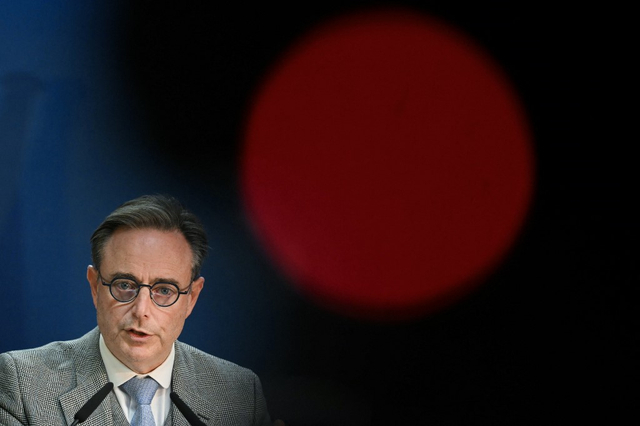
EU nations may soon be called upon to issue tens of billions in collective debt as a fallback strategy to keep Ukraine’s finances from collapsing, after Belgium blocked a proposal to use frozen Russian assets as the basis for a financial lifeline to Kyiv, reports have claimed.
Insiders say the ‘Plan B’ is being circulated as a “scarecrow” option to push reluctant member states towards using the immobilised Russian assets, which remains the preferred choice for the majority of states looking to plug Ukraine’s deficit.
JOIN US ON TELEGRAM
Follow our coverage of the war on the @Kyivpost_official.
Politico, citing three EU diplomats, wrote that the joint debt option will likely appear in a paper which will be presented by the European Commission to EU capitals in the next few weeks.
The proposal will reportedly come alongside two other options: finding a way to make the “reparation loan” acceptable to Belgium, or withdrawing EU financial backing altogether – with the latter seen as an approach only Hungary could endorse.
When EU leaders realized that Belgium would not budge on its objections to using the Russian assets held at Brussels-based Euroclear, several of them began sketching out the joint borrowing plan as a backup.
The notion that EU members – many already burdened by debt – may have to dig even deeper into their purses to sustain Ukraine is expected to focus minds, Politico reported.
Ukraine faces a major financial crunch at the end of the first quarter of 2026 without fresh funding, and for now, Europe remains the only credible lifeline.
Other Topics of Interest
Europe’s Blind Spot: Social Media Is a Strategic Threat
Europe cannot claim true strategic autonomy while relying on foreign-controlled social media. It’s not just a tech issue – it’s existential. Europe must build, regulate, and defend its own platforms.
In September, Kyiv projected it would require some $50bn in external support to get through 26, while EU officials anticipate that Ukraine will face critical funding shortfalls by April next year, with no headway in peace negotiations expected.
With the clock ticking, the Commission is under pressure to finalize its proposals quickly as leaders will need to reach a final decision by a summit of the EUCO on Dec. 18 at the latest.
It came after Belgian Prime Minister Bart De Wever blocked a plan to use Russian assets that have been immobilized in the EU since the start of the full-scale invasion to fund Kyiv’s defense on Thursday, saying that he feared his country could face legal and financial retaliation from Moscow.
Belgium hosts €183bn in Russian central bank assets at the Brussels-based institution Euroclear – some 86% of all Russian state assets in the EU and two-thirds of the global total.
The Kremlin has threatened to pursue any individual or country it perceives as having raided its funds, characterizing the scheme as theft, while President Volodymyr Zelensky has urged the EU to advance its plans.
EU ambassadors are slated to review the fallout from Thursday’s deadlocked talks during the Committee of Permanent Representatives (COREPER) meeting on Wednesday.
Most member states still regard the frozen Russian asset plan as the most viable and preferred route, given concerns about piling on additional debt, two of the diplomats stressed.
A fourth told Politico: “What’s the point of discussing alternative solutions? This [the reparation loan] is the only thing we have. And we should be honest about it.”
Sources also said that last week’s meeting only fell short of expectations because of poor timing, remaining cautiously optimistic that the plot to mobilize frozen Russian assets could still be salvaged.
De Wever, who is currently embroiled in difficult domestic budget talks, reportedly only saw the Commission’s latest legal proposal for the so-called “reparation loan” hours before the summit, two diplomats claimed.
This made any immediate endorsement highly improbable given the potential financial exposure for Belgium.
This is not the first time the EU has faced a single-country veto blocking its Ukraine funding efforts. In 2023, Hungary attempted to torpedo a package for financing Kyiv, though concerns then were more muted as US financial support could be relied upon.
Budapest, the sole holdout, later relented to pressure from EU leaders and dropped its objection, allowing the loan worth billions of euros to be approved the following year.
Politico reports that with assistance from Washington cut off and several major EU economies grappling with internal discord and strained budgets this time around, European leaders feel that they are navigating new and uncertain terrain.





